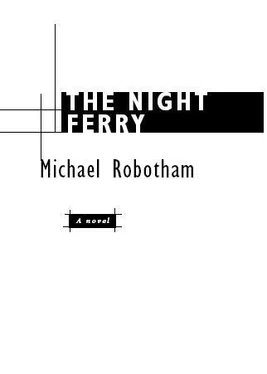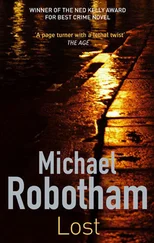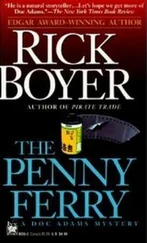How does he know that?
“Were you ever jealous of her?”
“I don’t know what you mean.”
“Friends can be jealous of each other. Oscar, here, is envious of my position and my wealth.”
“Not at all, my friend,” he beseeches.
De Souza smiles knowingly. “Did you envy Cate Beaumont’s beauty or her success?”
“Sometimes.”
“You wished she had less and you had more.”
“Yes.”
“That is natural. Friendships can be ambiguous and contradictory.”
“She is dead now,” I add, although I sense he knows this already.
“She paid money for a baby. A criminal act,” he states piously.
“Yes.”
“Are you trying to protect her?”
“I’m trying to rescue the surrogate mother and the babies.”
“Perhaps you want a baby for yourself?”
My denial is too strident. I make it worse. “I have never…I don’t…”
He reaches into a small pouch tied to the belt of his tunic. “Do you think I am a criminal, Miss Barba?”
“I don’t know enough—”
“Give me your opinion.”
I pause. The faces in the circle watch with a mixture of amusement and fascination.
“It’s not up to me to say,” I stammer.
Silence. Perspiration leaks into the hollow of my back, weaving between the bumps of my vertebrae.
De Souza is waiting. He leans close, his face only inches from mine. His bottom teeth are brittle and jagged, yellowing like faded newsprint. It is not such a perfect face after all.
“You can offer me nothing,” he says dismissively.
I can feel the situation slipping away from me. He is not going to help me.
The anger fermenting inside me, fueled by hostile thoughts and by images of Zala, suddenly finds an escape valve. Words tumble out. “I think you’re a criminal and a misogynist but you’re not an evil man. You don’t exploit children or sell babies to the highest bidder.” I point to Sunday’s wife who has come to collect our plates. “You would not ask this woman, the wife of a friend, to give up one of her children or force her to have another woman’s baby. You support asylum seekers and illegal immigrants; you give them jobs and find them homes. They respect and admire you. We can stop this trade. I can stop it. Help me.”
Sunday’s wife is embarrassed at having been singled out. She continues collecting the plates, eager to get away. The tension in the room is amplified by the stillness. Every man’s eyes are upon me. Oscar makes a choking noise. He would slit my throat in a heartbeat.
De Souza stands abruptly. The meeting is finished. Oscar takes a step toward me. De Souza signals for him to stop. Alone, he walks me to the front door and takes my hand. Pressed between his fingers is a small scrap of paper.
The door closes. I do not look at the message. It’s too dark to read it. The taxi is waiting. I slide into the backseat and lean against Ruiz as I close the car door. Hokke tells the driver to go.
The note is rolled into a tube, wedged between my thumb and forefinger. My hands are shaking as I unroll it and hold it up to the inside light.
Five words. Handwritten. “She leaves tonight from Rotterdam.”
Our taxi driver takes an entry ramp onto a motorway.
“How far is it?”
“Seventy-five kilometers.”
“What about the port?”
“Longer.”
I look at my watch. It’s 8:00 p.m.
“The Port of Rotterdam is forty kilometers long,” says Hokke. “There are tens of thousands of containers, hundreds of ships. How are you going to find her?”
“We need a ship’s name,” says Ruiz.
“Or a sailing time,” echoes Hokke.
I stare at the slip of paper. It’s not enough. We can’t phone ahead and alert Customs or the police. What would we tell them?
“Most likely they want to smuggle her into the U.K.,” I say. “They’ve used Harwich before.”
“They might choose an alternative port this time.”
“Or stick to what they know.”
Hokke shakes his head. It is a wild impossible chase. Rotterdam is the biggest container port in Europe. He has an idea. A friend, a former police officer, works for a private security firm that patrols some of the terminals.
Hokke calls him. They chat to each other gruffly, in stern sentences full of Dutch consonants. Meanwhile, I follow the brightly lit motorway signs, counting down the kilometers and the minutes. In the moonlight I can make out wind turbines like ghostly giants marching across the fields.
Trucks and semis are nose-to-tail in the outside lane. I wonder if Samira could be inside one of them. What must it be like? Deafening. Black. Lonely.
Hokke finishes the call and outlines the possibilities. Security is tight around the terminals and docks with CCTV cameras on the fences and regular dog patrols. Once inside there are Customs checks, heat-seeking scanners and more dogs. More than six and a half million shipping containers pass through the port every year. These have to be specially sealed. Empty containers awaiting transfer are a different story but even if someone breached the security and reached the containers, they wouldn’t know which ship it was meant to be loaded on unless they had inside information.
“Which means they’re more likely to target a truck before it reaches the port,” says Ruiz. “One they know is traveling to the U.K.”
Hokke nods. “We’re probably looking at roll-on, roll-off ferries. There are two major ferry operators doing North Sea crossings. Stena Line has a terminal on the Hook of Holland. PO operates from a dock fifteen kilometers farther east, closer to the city.”
We’re still twenty miles away and it’s nearly eight thirty.
Hokke makes another call, getting a timetable of departures, calling out the details. A PO ferry sails for Hull at nine o’clock. The Stena Line night ferry to Harwich leaves at eleven. Both arrive in the U.K. in the early hours of tomorrow morning.
“Are you carrying a passport, grasshopper?”
“Yes, sir.”
“You want to take the first ferry or the second?”
“I’ll take the second.”
Ruiz nods in agreement. “Anyone know the weather forecast?”
Hokke is on the mobile to PO seeing if they will hold the passenger gates open. They’re supposed to close fifteen minutes before departure, which means we won’t make it.
We’re basing our assumptions on a ratio of about 2 percent detail and 98 percent desire. Even if Samira is on board one of the ferries, she won’t be mingling with other passengers. They’ll keep her hidden. How are we going to find her?
My mind aches when I think about her. I made promises. I said I would find Zala and keep her safe. What am I going to say to her?
De Souza asked if I wanted the babies for myself. It was a ridiculous suggestion. Why would he say that? I’m doing this for Cate and for Samira. For the twins.
The docks are lit up for miles. Cranes and gantries act as massive lighting towers, painting the hulls of ships and rows of stacked containers. The water is dark and solid in between, and the waves are hardly waves at all, they’re wrinkles on a sluggish river.
The taxi pulls up outside the PO terminal. Ruiz is out the door before we stop moving. A week of maddening pain and morphine won’t slow him down.
“Good luck,” he yells without turning back. “I’m going to find her first.”
“Yeah, right. You’ll spend your entire time throwing up.”
His hand rises. One finger extends.
The Stena Line terminal is at the western edge of the port where the Hook of Holland reaches out into the North Sea. The taxi drops me and I say goodbye to Hokke.
“I can never repay you.”
Читать дальше












